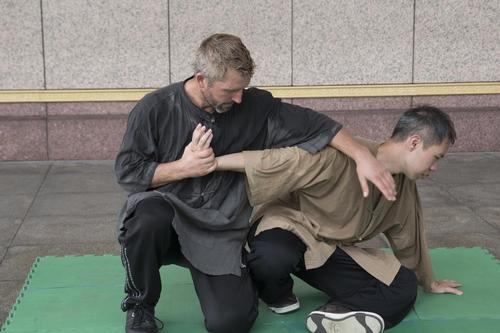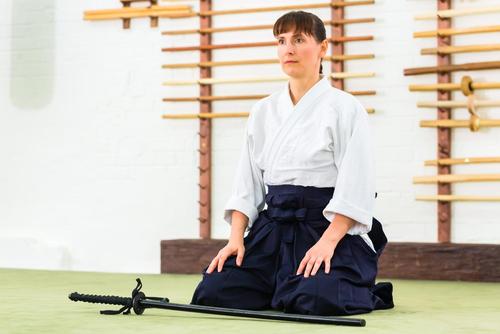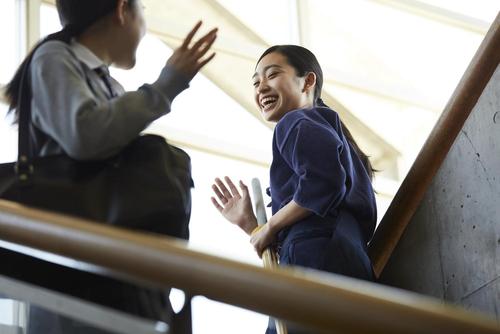Martial arts are one of Japan's most representative traditional cultures, and many people overseas are fascinated by their appeal. Even if people have a general image of martial arts, such as the good old Japanese spirituality and stoicism, some people may find it difficult to explain exactly what they are, even if they are Japanese.
Here we explain what Japanese "martial arts" are, their definition, whether martial arts can be considered a sport, and the benefits of practicing martial arts.
What is Japanese martial arts?

First, we will provide an overview of what "martial arts" are in Japan.
What is "martial arts" in Japan?
Budo refers to all martial arts that have been practiced in Japan since before the Edo period. Martial arts, also known as "bujutsu," originally developed as military tactics to hone combat skills, but over time they have been refined and turned into competitive sports.
Types of martial arts include judo, sumo, kendo, naginata, and kyudo, but also include martial arts that are not necessarily traditional Japanese arts.
Martial arts are not sports
Martial arts are similar to sports in that they involve physical exercise and competition based on rules established for each discipline. However, martial arts are not necessarily sports; spirituality is important when understanding martial arts.
The "bu" in budō literally means "warrior." Martial arts can be said to be a part of bushido, which includes the study of the spiritual aspects of etiquette and morality.
One of the mindsets for understanding the spirituality of martial arts is the concept of "zanshin." For example, in tennis, table tennis, soccer, and other matches, players may shout in joy or pump their fists when they defeat their opponent. However, in martial arts, this type of behavior is considered to be contrary to the spirit of the art.
In a match, even if you hit your opponent, you must keep your mind focused and maintain your stance so that you can respond to attacks from any direction at any time. This is called "zanshin," and in kendo, if you are deemed to have no zanshin, your hit may not be recognized as valid.
When a samurai fought an opponent, "defeating" could sometimes mean the death of the opponent. Although life-risking matches are no longer held in modern martial arts, the mindset required for these traditional serious battles is still highly valued in modern martial arts. Even if you win, you do not show joy, but instead maintain a calm mind, respecting your opponent and striving to improve further, which can be said to be one of the attractions of martial arts that is not found in other sports.
The benefits of practicing martial arts

Based on the concept of martial arts, we will also explain the benefits that can be obtained by practicing martial arts. Although there are some benefits that can be obtained from sports other than martial arts, by learning the spirit of martial arts, you will be able to obtain the comprehensive benefits listed below.
Acquiring politeness and patience
As the saying goes, "Begin with courtesy and end with courtesy" - courtesy is very important when learning martial arts. By learning martial arts, you will not only acquire politeness, but also find consideration for others and the patience to suppress your emotions and continue training silently.
Developing courtesy and patience will have a positive effect on your mental state in everyday life. You will also have a sharp beauty and dignity, which can improve the impression you make on first meetings and your relationships with others.
Improved concentration
In kumite practice and matches, it is important to be in a stance that allows you to respond to attacks from your opponent at any time, and you need to constantly pay attention to your opponent's movements. By being conscious of "zanshin," which keeps your mind from losing its rhythm, you can develop concentration and also train to clear your mind of distractions and maintain a stable mental state.
Furthermore, as you improve in martial arts, you will feel that your efforts are paying off and that you are growing. Believing that what you are doing is correct will also lead to a stable mind and improved concentration.
Flexibility of shoulder blades and hip joints
If you do desk work and don't have the habit of exercising, the movements you can make in your daily life will be limited. In particular, if you don't use your shoulder blades and hip joints, they will lose flexibility and become stiff, making you more susceptible to illness and injury.
Judo, kendo, kyudo, and other martial arts involve many movements that use the shoulder blades and hip joints. Therefore, by practicing martial arts, you can gradually regain flexibility, improve your movement, and move closer to a healthier body that is less prone to injury.
Improves metabolism and can be expected to have a diet effect
Martial arts allows you to use muscles that you don't use in your daily life, which improves your basic physical strength and metabolism. By increasing muscle mass and the working parts of your joints, your metabolism will become more active not only during martial arts practice, but also in your daily life when you're not practicing martial arts, so you can expect to see weight loss effects.
Depending on the martial art, you may be wearing a uniform and protective gear, which can put a lot of strain on your body, and sweating profusely can also help improve your metabolism.
Anyone can start regardless of age or gender.
People of all ages come to martial arts dojos to practice, regardless of age or gender. Most dojos are open to everyone, from young people to children and people in their 60s and older.
Many dojos do not require prior martial arts experience, and some even welcome beginners with no prior martial arts experience, as they can receive thorough training from the ground up.
You can start with easy training according to your age and experience, and gradually progress, and because we value the mindset in martial arts, you can devote yourself to training without feeling inferior because of your age, gender, nationality, or physical ability.
It will also help you expand your horizons and connections by interacting with people you would never meet in your everyday life in a respectful manner.
summary
Budo refers to all martial arts that were widely practiced as combat training in pre-modern Japan and developed into competitive sports, with representative examples including judo, sumo, and kendo. Budo differ from other sports in that they emphasize spirituality and courtesy, and because they share some similarities with bushido, they are becoming increasingly popular overseas.
Martial arts also have the benefit of cultivating concentration, helping you lose weight, and expanding your circle of potential acquaintances. Another major attraction is that anyone can start at any time, regardless of age or gender.
This article has been partially re-edited by KARUTA from an article originally published on "Nihongo Biyori."
Any unauthorized reproduction or use of the contents, text, images, illustrations, etc. of this website is strictly prohibited.
